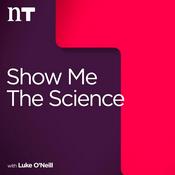308 episodes

EPR: The Reactor That Tried to Please Everyone and Satisfied No One
15/1/2026 | 1h 17 mins.
In this episode of Decouple we deep dive the European Pressurised Reactor and what its troubled construction history reveals about the real constraints on nuclear build out in the modern West. The conversation traces how a design intended to satisfy every regulator through a design philosophy of extreme redundancy and conservative safety margins instead exposed the limits of Western construction capacity, supply chain readiness, and project management culture. The episode also places the EPR in context alongside other large reactor designs, including AP1000 and APR 1400, highlighting how different philosophies around active redundancy, passive safety, modularity, and operational flexibility shape construction risk and cost. We explore why Germany and Korea were able to execute reactors with highly redundant active safety systems successfully when industrial capacity was warm, and why the EPR pushed that same philosophy beyond the point of diminishing returns. Listen to Decouple on:• Spotify: https://open.spotify.com/show/6PNr3ml8nEQotWWavE9kQz• Apple Podcasts: https://podcasts.apple.com/us/podcast/decouple/id1516526694?uo=4• Overcast: https://overcast.fm/itunes1516526694/decouple• Pocket Casts: https://pca.st/ehbfrn44• RSS: https://anchor.fm/s/23775178/podcast/rssWebsite: https://www.decouple.media

Why Nuclear Shipping Is Inherently Niche
08/1/2026 | 1h 26 mins.
Why have we built nuclear ships before, proven they can operate, and still not made them commonplace? Nick Touran breaks down the history of maritime nuclear power, from the Nuclear Ship Savannah and Otto Hahn to Japan’s Mutsu and Russia’s Sevmorput, then pivots to floating nuclear power concepts such as the MH 1A Sturgis and the Offshore Power Systems program. We explore what worked, what failed, and what keeps blocking adoption, including port access rules, indemnity and international agreements, staffing costs, containerization economics, shielding and public reaction, and the unique operational demands of running reactors at sea.Listen to Decouple on:• Spotify: https://open.spotify.com/show/6PNr3ml8nEQotWWavE9kQz• Apple Podcasts: https://podcasts.apple.com/us/podcast/decouple/id1516526694?uo=4• Overcast: https://overcast.fm/itunes1516526694/decouple• Pocket Casts: https://pca.st/ehbfrn44• RSS: https://anchor.fm/s/23775178/podcast/rssWebsite: https://www.decouple.media

Janus: The Army’s Second Attempt at Fielding Microreactors
18/12/2025 | 1h 12 mins.
In this episode of Decouple, Dr. Jeff Waksman, Principal Deputy Assistant Secretary of the Army for Installations, Energy and Environment, explains how the U.S. Army is making a second attempt at making microreactors great again. The discussion situates the Janus microreactor program in the long history of the Army Nuclear Power Program and Project Pele, highlighting why earlier small reactor deployments failed to compete with diesel and grid power even in extreme environments, and why Janus represents a fundamentally different approach.Janus is best understood as an attempt to apply the Commercial Orbital Transportation Services model to nuclear energy, using milestone-based funding, hard downselects, and vendor replaceability to subsidize learning rather than electricity sales. The conversation explores the severe economic constraints facing one to ten megawatt reactors, the limits of the SpaceX analogy, and the unglamorous but decisive challenges of fuel logistics, waste removal, and slow nuclear learning cycles that will ultimately determine whether microreactors can ever move beyond demonstration and into durable military let alone commercial service.Listen to Decouple on:• Spotify: https://open.spotify.com/show/6PNr3ml8nEQotWWavE9kQz• Apple Podcasts: https://podcasts.apple.com/us/podcast/decouple/id1516526694?uo=4• Overcast: https://overcast.fm/itunes1516526694/decouple• Pocket Casts: https://pca.st/ehbfrn44• RSS: https://anchor.fm/s/23775178/podcast/rssWebsite: https://www.decouple.media

Why the First Nuclear Renaissance Failed: Can America Build Eight AP1000s Now?
11/12/2025 | 1h 33 mins.
The first U.S. nuclear renaissance collapsed under the weight of cheap shale gas, lost institutional expertise, and disastrous projects like Vogtle and Summer. Today, America is planning a fleet of eight AP1000 reactors, backed by unprecedented federal incentives. But can the country actually build large nuclear again?In this video, we break down what really killed the 2000s revival, why Fukushima wasn’t the turning point, and how AP1000 and ESBWR passive safety performed in station-blackout analyses. Most importantly, we explore why nuclear success depends not on reactor design, but on rebuilding the developer organizations needed to execute these megaprojects.If the United States can rebuild those institutions, a real nuclear comeback is possible. If not, history risks repeating itself.Listen to Decouple on:• Spotify: https://open.spotify.com/show/6PNr3ml8nEQotWWavE9kQz• Apple Podcasts: https://podcasts.apple.com/us/podcast/decouple/id1516526694?uo=4• Overcast: https://overcast.fm/itunes1516526694/decouple• Pocket Casts: https://pca.st/ehbfrn44• RSS: https://anchor.fm/s/23775178/podcast/rssWebsite: https://www.decouple.media

The Real Stakes of a Saudi Nuclear Deal
02/12/2025 | 1h 3 mins.
Saudi Arabia burns nearly one million barrels of oil per day to keep its lights on, yet it has cheaper and faster ways to replace this than by building large nuclear reactors. So why is the Kingdom pushing so hard for a civil nuclear deal? This episode walks through the strategic logic that has animated Riyadh’s nuclear ambitions for more than a decade. The answer lies in prestige, industrial capacity, and the latent fuel cycle capabilities that come with a power reactor programme, all set against the backdrop of regional tension with Iran.We look closely at the recent Washington announcement that United States Saudi 123 talks have been “concluded,” the unresolved fight over enrichment rights, and the geopolitical pressure being applied to South Korea to align its nuclear exports with American interests. From the legacy of the Quincy pact to the rivalry between Westinghouse and KEPCO, this conversation unpacks how a simple reactor tender has become one of the most consequential energy and security decisions in the Gulf.Listen to Decouple on:• Spotify: https://open.spotify.com/show/6PNr3ml8nEQotWWavE9kQz• Apple Podcasts: https://podcasts.apple.com/us/podcast/decouple/id1516526694?uo=4• Overcast: https://overcast.fm/itunes1516526694/decouple• Pocket Casts: https://pca.st/ehbfrn44• RSS: https://anchor.fm/s/23775178/podcast/rssWebsite: https://www.decouple.media
More Science podcasts
Trending Science podcasts
About Decouple
Listen to Decouple, Hidden Brain and many other podcasts from around the world with the radio.net app

Get the free radio.net app
- Stations and podcasts to bookmark
- Stream via Wi-Fi or Bluetooth
- Supports Carplay & Android Auto
- Many other app features
Get the free radio.net app
- Stations and podcasts to bookmark
- Stream via Wi-Fi or Bluetooth
- Supports Carplay & Android Auto
- Many other app features


Decouple
download the app,
start listening.





































